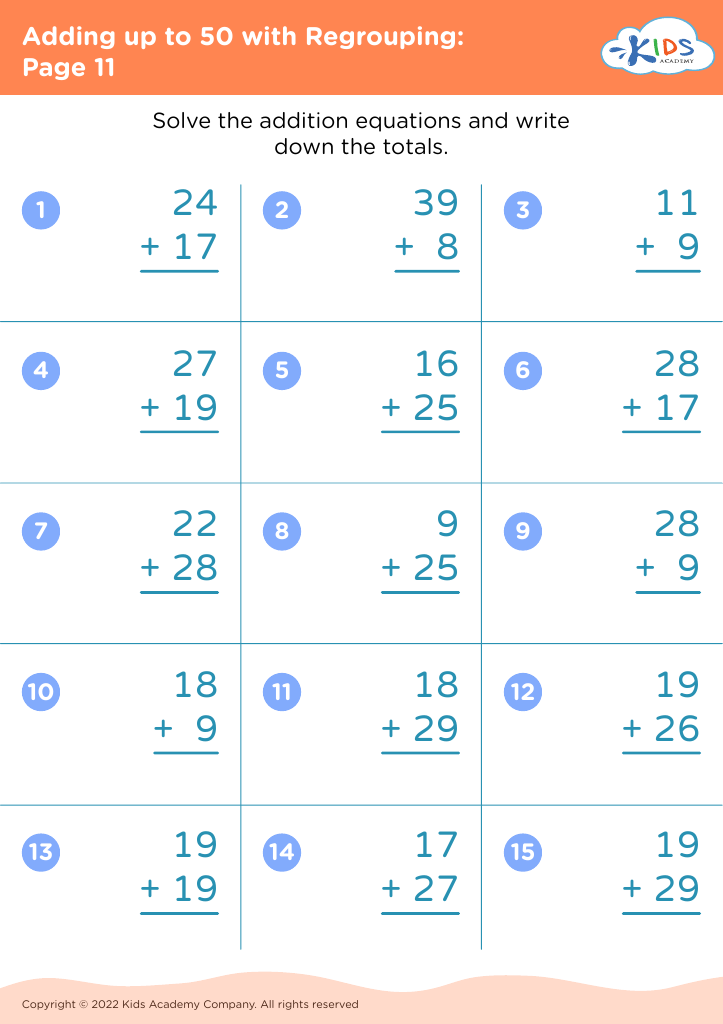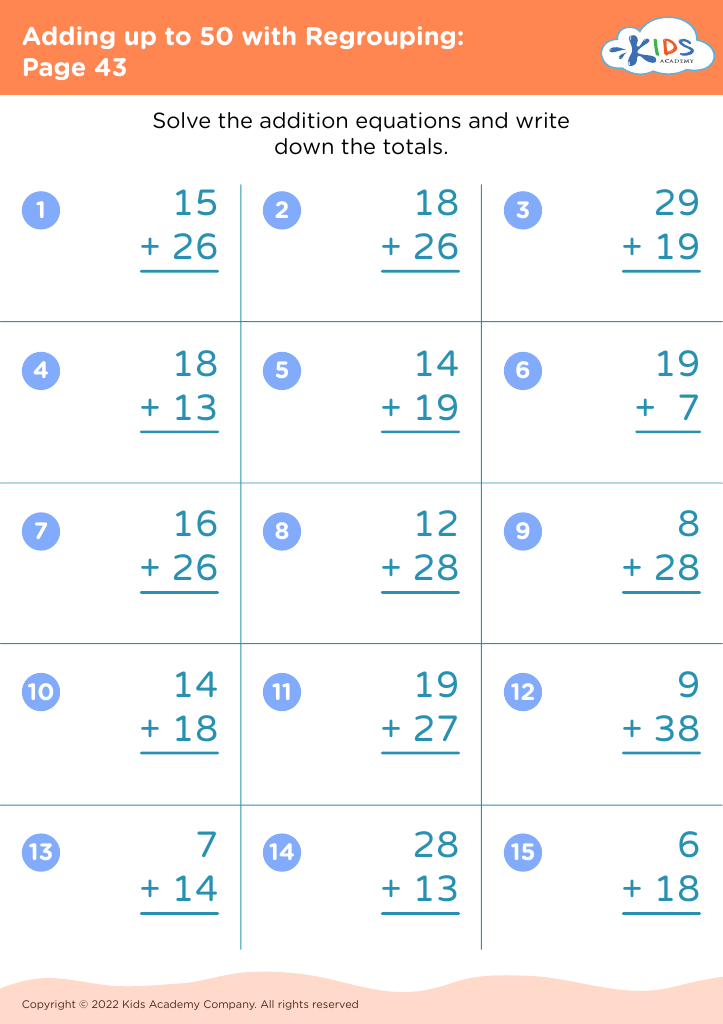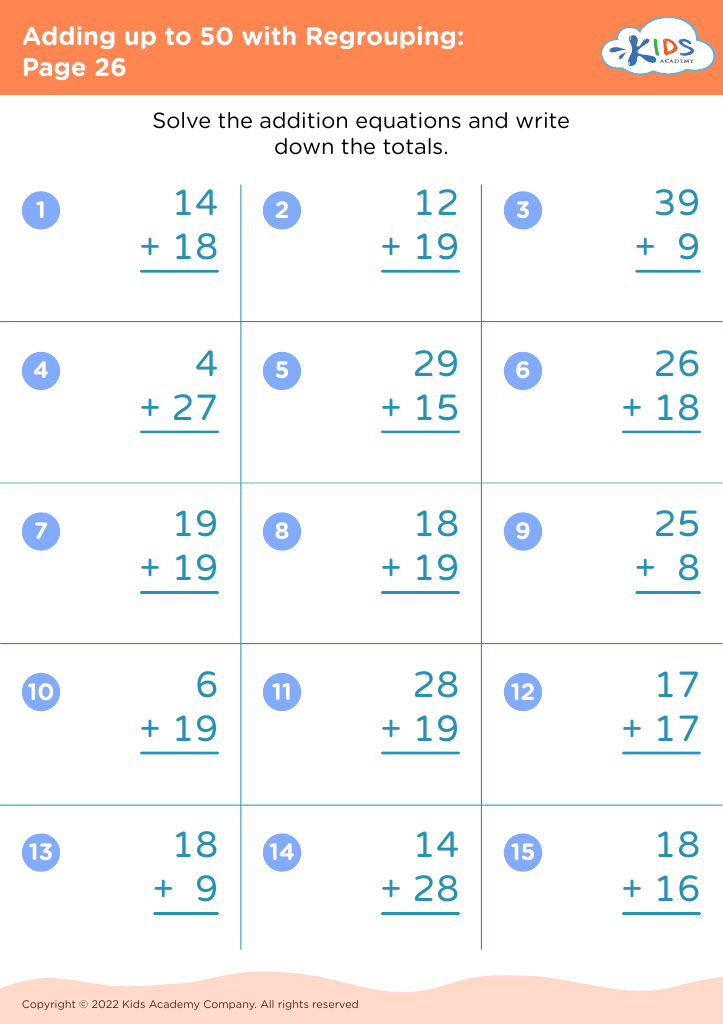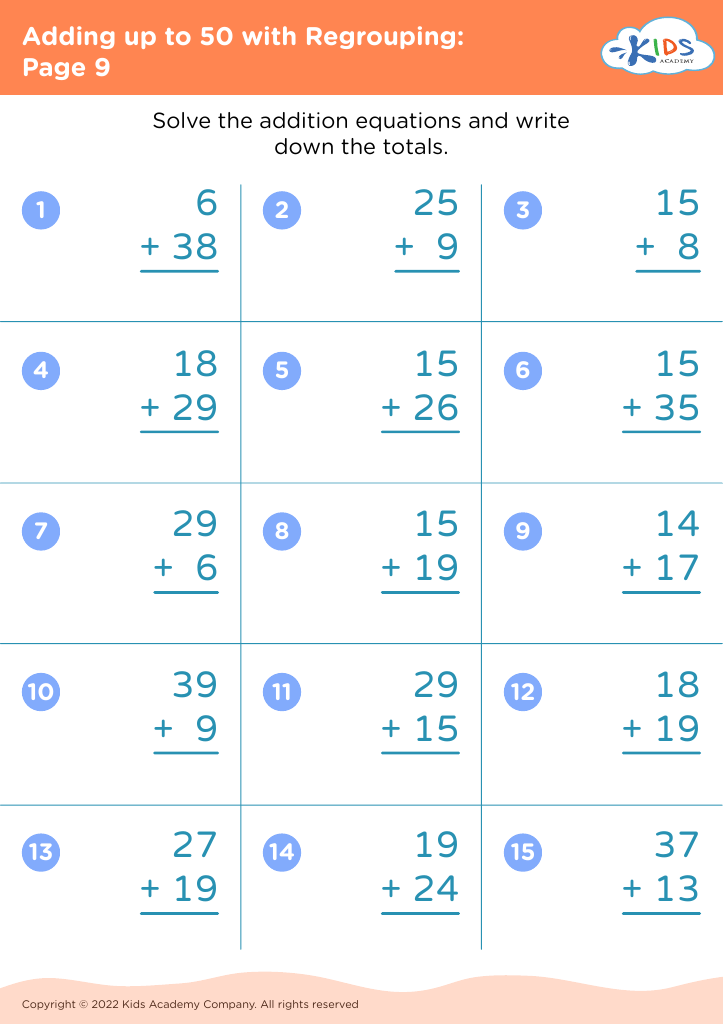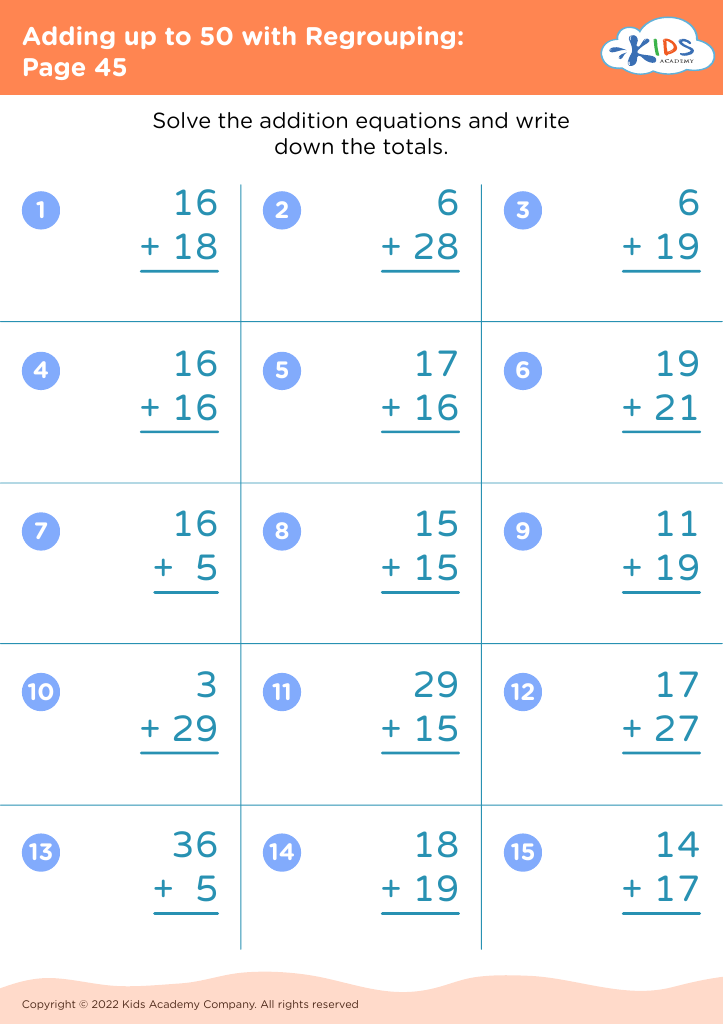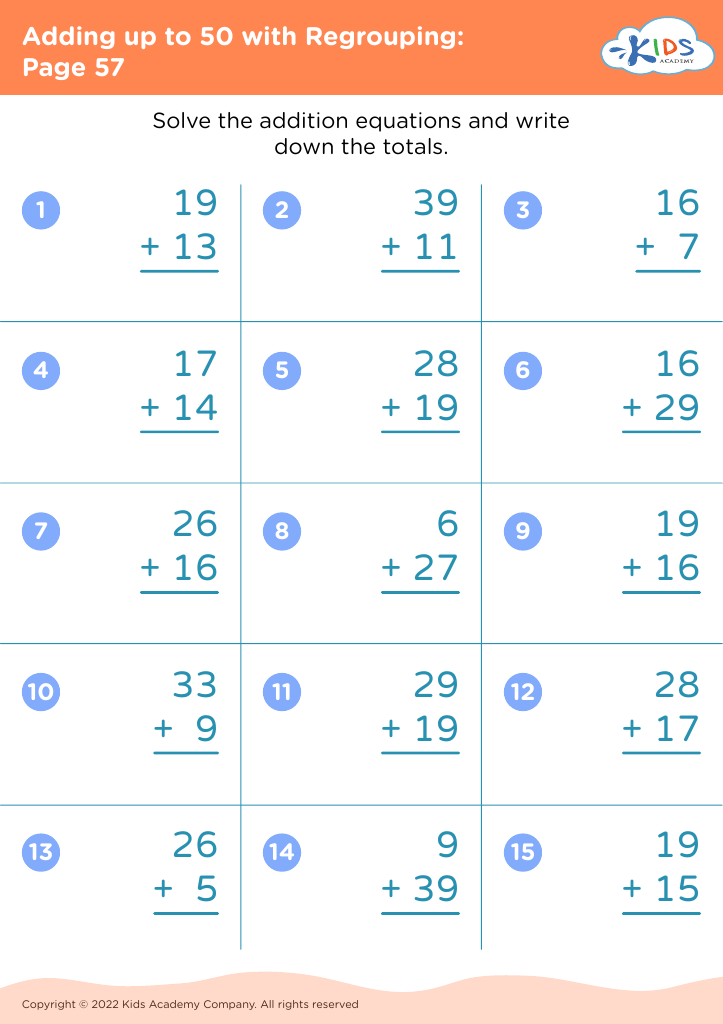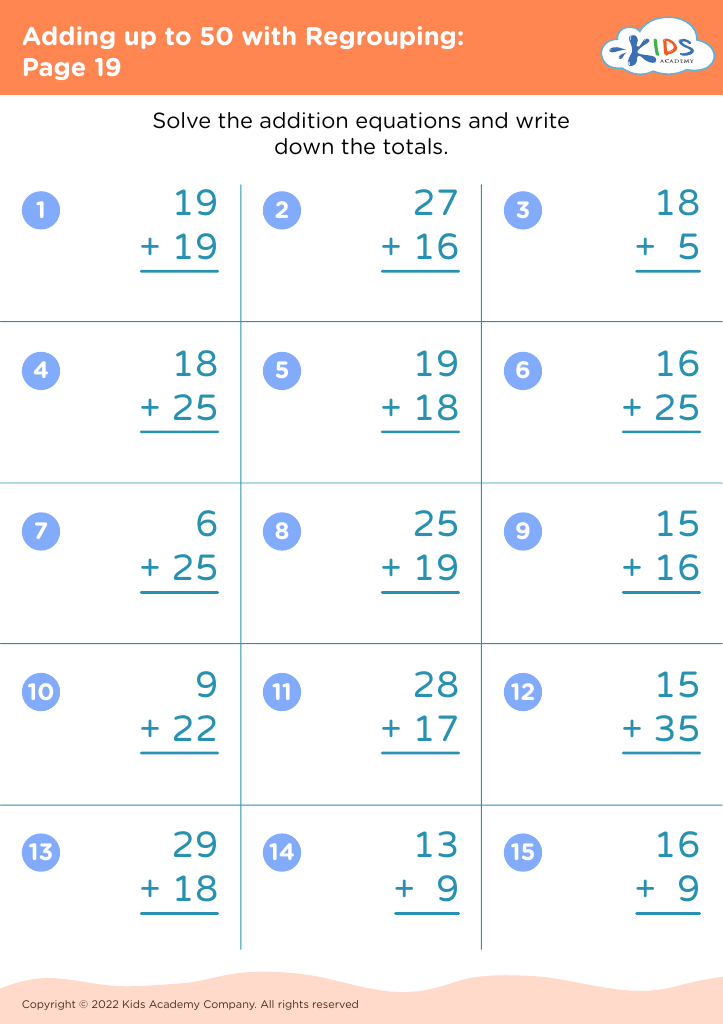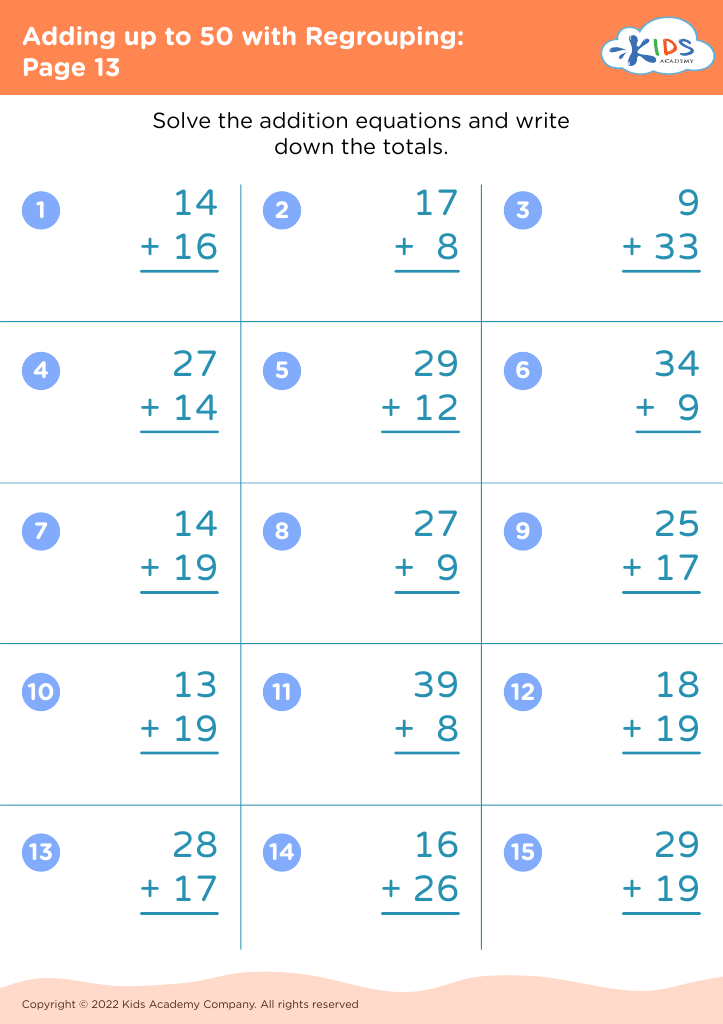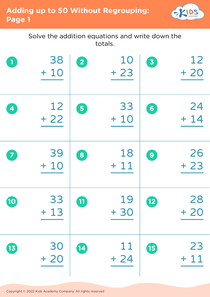Counting skills Adding up to 50 with Regrouping Worksheets for Ages 4-7
13 filtered results
-
From - To
Enhance your child's counting skills with our "Counting Skills: Adding up to 50 with Regrouping" worksheets, designed for ages 4 to 7. These engaging, age-appropriate worksheets introduce foundational math concepts and promote confidence in young learners. With hands-on activities, children will develop their ability to add numbers while mastering the technique of regrouping. Our vibrant, interactive worksheets captivate kids, making learning fun and effective. Ideal for both classroom and home use, these resources support early math education, ensuring that kids grasp essential skills as they prepare for more advanced topics. Start your child's math journey today!
Counting skills and the ability to add up to 50 with regrouping are crucial developmental milestones for children aged 4-7. At this formative stage, children are building their mathematical foundations, which will serve them throughout their academic journey. Understanding counting and addition not only enhances cognitive skills but also aids in problem-solving and critical thinking.
Parents and teachers should prioritize these skills because they support early numeracy concepts essential for more complex mathematical operations in the future. Mastering addition up to 50, especially with regrouping, ensures that children become comfortable with carrying numbers, which is vital for their progress in mathematics. This competence fosters confidence and independence in tackling math problems.
Furthermore, when children are proficient in counting and addition, they are more likely to engage in real-life situations that involve math, such as shopping or sharing snacks. This real-world application creates meaningful learning experiences and helps children see the relevance of math in their everyday lives.
Lastly, parents and teachers play a crucial role in creating a positive learning environment. Encouraging practice and offering support can significantly enhance a child's interest in mathematics, setting the stage for future academic success.

